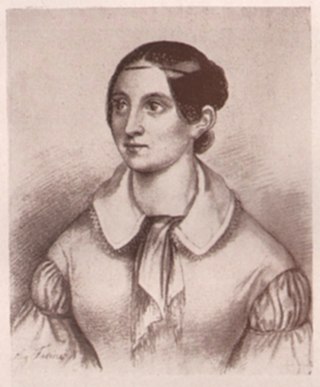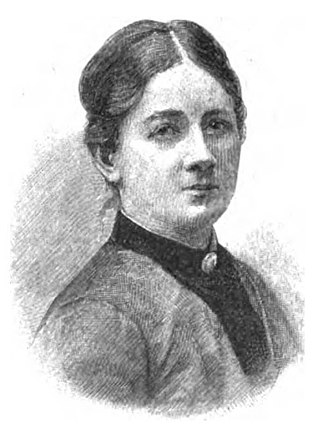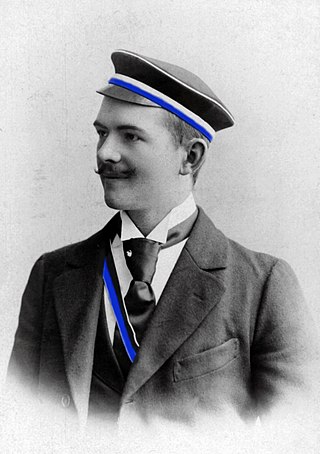Related Research Articles

Weimar is a city in the German state of Thuringia, in Central Germany between Erfurt to the west and Jena to the east, 80 km (50 mi) southwest of Leipzig, 170 km (106 mi) north of Nuremberg and 170 km (106 mi) west of Dresden. Together with the neighbouring cities of Erfurt and Jena, it forms the central metropolitan area of Thuringia, with approximately 500,000 inhabitants. The city itself has a population of 65,000. Weimar is well known because of its cultural heritage and importance in German history.

Johann Christoph Friedrich von Schiller was a German playwright, poet, philosopher and historian. Schiller is considered by most Germans to be Germany's most important classical playwright.

Johannes Friedrich Heinrich Schmidt was a German linguist. He developed the Wellentheorie of language development.
Bernhard Rudolf Abeken was a German philologist and literature historian.

Charlotte Albertine Ernestine von Stein, born von Schardt; 25 December 1742, Eisenach – 6 January 1827, Weimar, was a lady-in-waiting at the court in Weimar and a close friend to both Friedrich Schiller and Johann Wolfgang von Goethe, whose work and life were strongly influenced by her.

Weimar Classicism was a German literary and cultural movement, whose practitioners established a new humanism from the synthesis of ideas from Romanticism, Classicism, and the Age of Enlightenment. It was named after the city of Weimar, Germany, because the leading authors of Weimar Classicism lived there.

Caroline von Wolzogen, was a German writer in the Weimar Classicism circle. Her best-known works are a novel, Agnes von Lilien, and a biography of Friedrich Schiller, her brother-in-law.

Charlotte Sophia Juliana von Kalb was a German writer who associated with poets Friedrich Schiller, Johann Wolfgang von Goethe, Friedrich Hölderlin and Jean Paul.

Adolf Brütt was a German sculptor. He was the founder of the Weimarer Bildhauerschule and its accompanying bronze foundry.
Hans-Günther Thalheim was a German professor of German language and linguistics and of Literary sciences. He was also a writer and literary editor.
Gerhard Scholz was a German university professor and writer. The focus of his work was on Philology, German language and culture and literary history.

Böhlau Verlag is a book and magazine publisher predominantly of humanities and social science disciplines, based in Vienna and Cologne, with a branch in Weimar. They describe their focus as being "from the historically oriented humanities". The publishing house was an independent and privately owned media corporation until it was acquired by Vandenhoeck & Ruprecht in 2017.
Ursula Wertheim was a German literary scholar and university teacher at Jena in East Germany. The primary focus of her writing and teaching was on Germany's eighteenth and nineteenth century classical literature.

Angelica Bellonata Facius was a German sculptor, gem engraver, and medallist.
Charlotte Hohmann was the first editor in chief of Die Frau von heute, the mass circulation weekly women's magazine founded in 1946 in Germany's Soviet occupation zone, into which, after 1949, rival publications were absorbed. As a young woman she was a political activist (KPD). Unlike her brother, she survived the Nazi years, but she nevertheless underwent several Gestapo interrogation sessions. During the early 1950s she held various senior positions within the East German print media sector even, at least on paper, after her retirement in 1955.
Lydia Poser was a German politician of the KPD and SED and widow of the executed Communist official Magnus Poser.
Walter August Wilhelm Schulz was a German cellist, viol player and college teacher. From 1945 to 1948 he was director of the Hochschule für Musik Franz Liszt, Weimar.
Georg Paul Rudolf Meissner or Meißner or Meiszner was a German philologist who specialized in Germanic studies.

Natalie von Milde, Natalie Haller until 1881 was a German writer and feminist. She was an adoptive daughter of Rosa von Milde (1827–1906) and Hans Feodor von Milde (1821–1899).

Julius Petersen was a German literary scholar and university professor, principally at the Friedrich Wilhelm University in Berlin. He did much to rediscover the works of Theodor Fontane for twentieth century readers. Petersen himself has been described as one of the most influential academics in the field of German studies during the interwar period, but after 1945 he disappeared from university reading lists. During the 1960s interest in his life and works resurfaced, though it has frequently been on account of evident contradictions in his attitude to National Socialism during the final decade of his own life that he has attracted the interest of more recent commentators.
References
- 1 2 3 4 5 6 7 8 9 10 11 12 Bernd-Rainer Barth; Carsten Wurm. "Petersen, Leiva * 28.11.1912, † 17.4.1992 Verlegerin". "Wer war wer in der DDR?". Ch. Links Verlag, Berlin & Bundesstiftung zur Aufarbeitung der SED-Diktatur, Berlin. Retrieved 7 December 2016.
- 1 2 3 4 5 6 7 8 9 10 11 Gunter Lauterbach (2001). "Petersen, Leiva Constanze: Verlegerin, * 28.11.1912 Berlin-Lichterfelde, † 17.4.1992 Weimar. (evangelisch)". Neue Deutsche Biographie . Historische Kommission bei der Bayerischen Akademie der Wissenschaften (HiKo), München. p. 257 f. Retrieved 7 December 2016.
- ↑ Helmut Steiner, Wien [in German] (2012). "um 100. Geburtstag von Leiva Petersen". Verlag Vopelius, Jena. Retrieved 7 December 2016.
- ↑ "Einträge in das Goldene Buch von 1980 - 1989". Stadt Pforzheim (Geschäftsbereich Kommunikation und Internationales). Retrieved 7 December 2016.